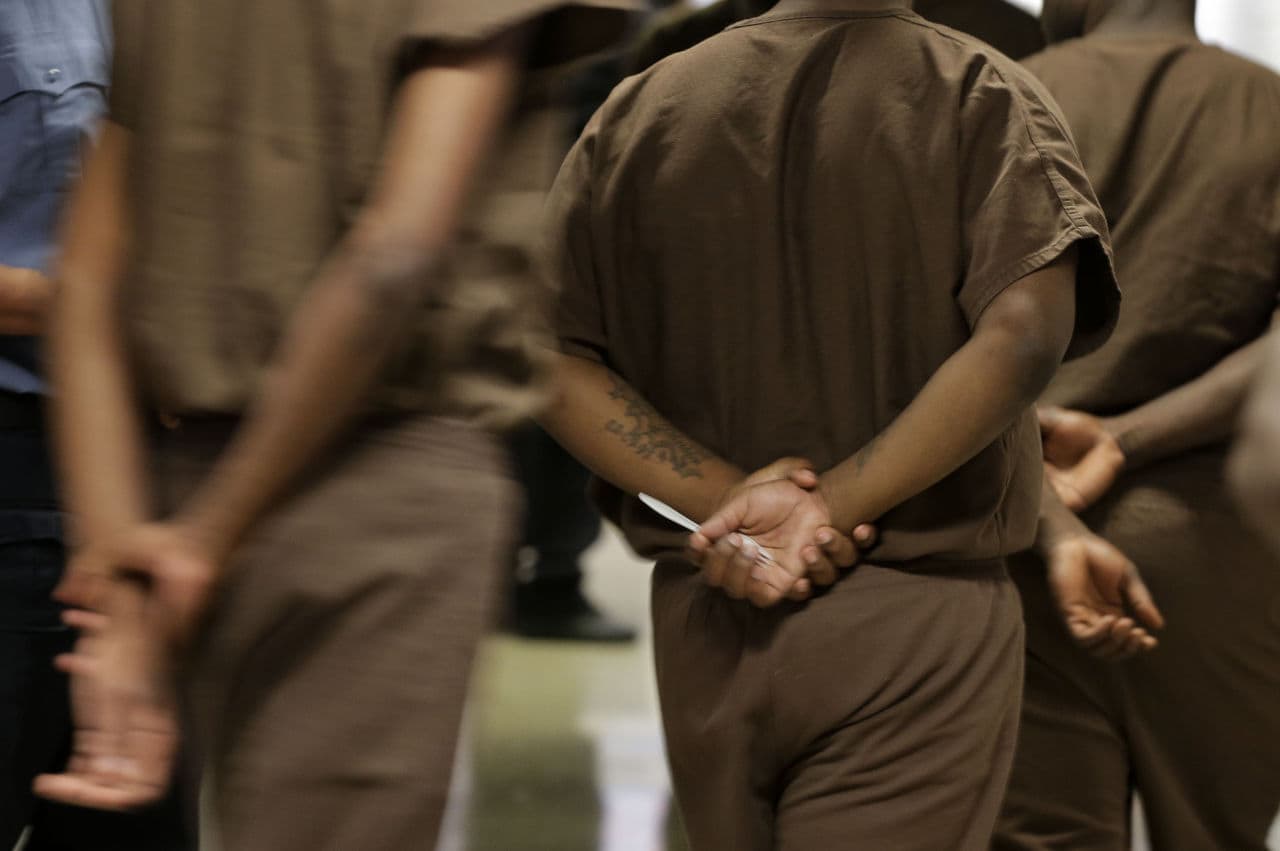Advertisement
The Ambitious Plan To 'Fix' Local Jails
Inside a major push to reduce jail populations and fix racial disparities in the justice system. Eleven major cities are all in.

Criminal justice issues all over lately. A new report out of Chicago on all-too-obvious trust and race problems with the Chicago Police. Bill Clinton, grilled on his 1990s anti-crime push and our packed prisons. Black Lives Matter raging, ever since Ferguson. A new initiative looks to go local for a fix. To our local jails. They too are packed with the poor. And the channels in and out have everything to do with the big picture. Up next On Point: race, poverty and fixing jail.
-Tom Ashbrook
Guests
Laurie Garduque, director of justice reform at the John D. and Catherine T. MacArthur Foundation.
Maxine White, chief judge of Wisconsin's First Judicial Court, judge on the Wisconsin Supreme Court.
Keir Bradford-Grey, chief defender at the Defender Association of Philadelphia.
From Tom’s Reading List
Mic: The "Genius Grant" Foundation Just Took a Big Step on Changing the Criminal Justice System — Eleven jurisdictions will receive between $1.5 million and $3.5 million over the next two years, while nine will be given $150,000 grants. All jurisdictions will be given access to expert advisers as they go about pursuing the plans they pitched to the MacArthur Foundation on how to reduce their jail populations and make them fairer to marginalized communities.
Associated Press: 11 US jails win millions in grants to overhaul operations — There are about 12 million admissions annually across the more than 3,000 jails in the country. While inmates inside state and federal prisons have recently been the focus of sentencing and other reforms, how local lockups operate has received far less attention. Most jails hold people accused of a crime before a trial, and experts say too many of those held are there on nonviolent offenses because they can’t afford bail, have serious mental illnesses or suffer from drug addictions.The
Advertisement
Philadelphia Inquirer: Phila. wins $3.5M grant to cut inmate numbers — The city's police, beyond bias training, would receive guidance in using the civil rather than criminal code when confronted with low-level nonviolent violations such as public drinking and smoking on SEPTA platforms. Rather than arrest, violators would face citations. In addition, two adjoining police districts with high rates of minority incarceration will be chosen to train officers in identifying low-risk offenders who would be better served by mental-health or substance-abuse treatment than arrest.
This program aired on April 14, 2016.